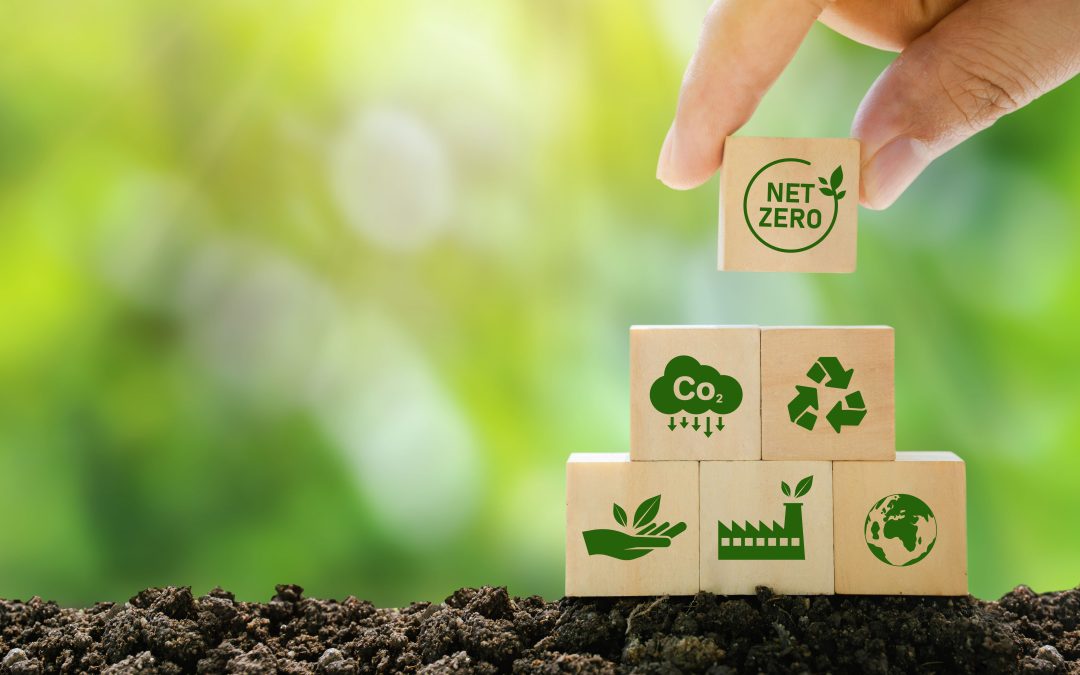
Jun 27, 2023
Since 2017 LIMA has been involved in different EU-funded projects, all of them around #EnergyTransition in #buildings. Our expertise on #ClimatePositive buildings, #Innovative approaches and #Communication and #Dissemination strategies has been key for our participation in those projects. This is a short summary of the most recent ones:
- ePLANET project (2021-2024), targets the deployment of a new clustering governance for Energy Transition based on a digital framework to share harmonized information. Together with 8 more partners, LIMA is working to provide public authorities with a set of tools to improve decision-making and policy-making, to facilitate the adoption of new or improved policies and actions plans, the implementation of Energy Transition and to foster the sharing of Energy Transition Measures information at vertical and horizontal level.
- ProGETonE project (2017-2022), has developed and demonstrated an integrated approach to address two important needs in existing buildings: reducing energy consumption to align with EU climate change reduction targets, and increasing seismic safety against possible future earthquakes. The project proposes a buildings renovation approach based on the GET system, a prefabricated modular system that allows the reduction of renovation costs and increases the available living area of the building.
- VILAWATT project (2017-2021), has promoted the Energy Transition of Viladecans municipality. This innovative project promoted the establishment of a new public-private-citizen partnership (PPPC) structure -composed of citizens, businesses, and the City Council- as a driver for deep energy renovation of residential buildings. The PPPC became an energy operator adapted to residents willing to renovate their buildings, allowing for a strong transition towards a sustainable and renewable energy model. This new model was complemented by the creation of a local currency, which allowed for the incentivization of energy savings by citizens and the strengthening of the local economy.
A part from those EU-funded projects, the LIMA prototype of climate-positive building -developed in 2010 by a research team lead by SaAS with the participation of 40 companies from the sustainable construction and energy efficiency sector- has also been supported by several EU-funded projects for its innovative approach. In particular, our design reduces drastically the global environmental impact of buildings in warm climates, at a lower cost rates compared to traditional residential buildings solutions. LIMA prototype has become a reference for low-emission buildings in the Mediterranean area.
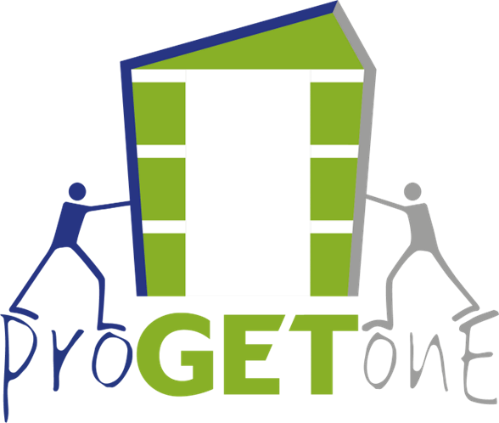
Oct 15, 2022
The ProGETonE project successfully ended in September 2022.
The project aimed at developing an integrated approach for the building sector, combining energy performance upgrades to nZEB with seismic strengthening solutions to face future earthquakes in seismic zones. The main distinctive sign of Pro-GET-onE solutions are the integration between deep energy renovation techniques (targeting 70% of energy savings) and seismic retrofitting actions aimed at solving construction and safety problems within nZE (nearly Zero Energy) retrofitting, focussing at the same time on users’ priorities and expectations.
This is achieved through a holistic and integrated set of technologies (GET system) that optimally manages the different requirements (energy, structural, functional) to achieve the highest performances in terms of:
- Energy requirements – by adding new prefab plug and play high energy performing envelopes and HVAC systems (Heating, Ventilation, Air Conditioning) ;
- Safety – by using appropriate external structures to increase the overall structural capacity of the building, while supporting the new envelope;
- Social sustainability – by increasing the real estate value of the buildings and the desirability of retrofit options by providing tailored and customized solutions for users, owners, and house managers, though minimum disturbance of inhabitants.
An important characteristic of the GET system is to be “BIM oriented”. The aim is to create a database of solutions that can be exploited for other case studies. Furthermore, the application of BIM in the field of refurbishment of existing buildings allows to intervene in the production process of components in off-site factories, in their delivery to the construction site and in the optimisation of on-site assembly procedures.
With the end of the project, we can see the results of such ambitious objectives in the demo building located in a student residence of the National and Kapodistrian University of Athens, Greece, as well as with a wide set of solutions (digital tools, technical products, strategy reports, business models and scientific publications) available through our project website.
These are the most relevant outputs and results of the project:
The GET System
The GET system integrates 3 different technological solutions for buildings renovation, focusing on energy efficiency and seismic safety principles:
- The Exoskeleton
- Architectural façade components: GET System Abacus
- Integrated HVAC façade components: TG-Box & TG-Beam
All the information regarding these solutions is described in the GET System section of the website.
The GET.onE app
ProGETonE considers the final user as a key decision maker during the whole renovation process. The renovation solutions can be combined in different ways to get tailor-made solutions focused on achieving high social acceptance. To facilitate the decision making, we have developed the GET.onE.app. This is a new User Interface application for complex BIM projects.
Combining three-dimensional and real-time visualisation technologies with a simple and user-friendly interface, the GET.onE.app tool supports owners and professionals to visualise and choose the most appropriate options from ProGETonE solutions, according to their needs, expectations, personal tastes and budget.
In the GET.onE.app section of our website you can find more information as well as the Windows and Mac installers. Link: https://app.progetone.eu/
Strategy reports
Some of the most relevant strategy reports generated during the project duration are also publicly available. These are documents that have key knowledge and strategic analysis and that we consider useful to share amongst the scientific community.
Some of them are related to the Exploitation Strategy (e.g. “Exploitation plan of the GET system in the ESCO-Construction scenario”), or to the Energy assessment of the different solutions (e.g. “Report on the performance of applied measures by using smart meters”). Some others focus on the strategic assessment of available technologies (e.g. “State of the Art of deep energy renovation” and its equivalent report regarding seismic retrofit techniques, or the “Catalogue on Optimal Techniques and Components”).
These and other similar reports are available in the Download section of the website: https://www.progetone.eu/download/
Online webinars
During the last year of the project, we have delivered a webinar’s cycle to discuss about some of the most interesting topics around #buildings, #energyefficiency and #seismicstrengthening. These were short webinars (30 to 45 minutes) where 3 experts presented their insights on the topic and discussed during a final round-table.
Digital transformation of the building sector
Within this webinar we present different #decision-making tools, that can support end-users on the selection of their final renovation solutions -by visualizing them in a easy-to-use user interface-, or building designers on the best circular solution for their specific target -by evaluating in #realtime their degree of circularity. The digital transformation offers an opportunity to create new tools that will foster the design and construction of new zero emission buildings, which will enhance the decarbonisation of the building sector.
Barriers for broad deployment of deep renovation
Which are the usual obstacles that need to be tackled to facilitate the broad deployment of deep renovation in the building sector? How can we improve social engagement within deep energy renovation or circular renovation projects?
Pioneers’ role of public sector in holistic deep renovation
Which should be the role of the public sector regarding deep renovation of the building sector? How can they pave the way for next-generation renovation solutions? Which are the needs and requirements that could facilitate their pioneer’s role? In this webinar, the experts discussed around public procurement solutions, capacity building for public officers, deep renovation awareness raising for citizens.
Energy communities and how to improve self-consumption
Do you know what energy communities are? Do you know that you can generate renewable energy in your building, and share it amongst your neighbours? In this webinar, experts gave us interesting insights about self-consumption strategies for the housing sector, energy generation, energy distribution and energy communities.
Improving safety in the housing sector
Buildings in Europe are not usually prepared to face major earthquakes. There is a strong need to improve buildings’ safety in this regard, thus saving lives. In this webinar we discussed about different available technologies and solutions to increase seismic strengthening at housing sector, with 3 important experts in the seismic renovation fields.
COVID’s effects on housing
Our first webinar was held when #Covid19 was one of the main concerns of our society. The Covid pandemic has highlighted the deficiency of households in terms of comfort and environmental health. In this #webinar, you will find interesting insights on how should be the transition to high indoor environmental quality households.
Workshops & Conferences
ProGETonE has been very active on sharing the generated knowledge during the project activities. We have been present in more than 35 events, including events organised by the Consortium members (e.g. workshops and conferences) and participation at external events.
For the most relevant events organised by ProGETonE, the website includes the presentations of the different involved experts. For examples, those related to the “Building Envelopes Kits for Deep Renovation” (workshop in SP2021, Rome, 2021), “No Money for the Future” (conference, Barcelona, 2019), “Exploitation of Business Models for Deep Renovation” (workshop, Cagliary, 2019), “Symposium on Seismic improvement and energy neutral retrofitting” (conference, Groningen, 2019) and “Symposium on Energy, Seismic and Architectural retrofit practices” (conference, Bologna, 2018)
You can find these and other events and presentations at: https://www.progetone.eu/conferences/
Scientific publications
Part of the R&D activities of ProGETonE have been published as scientific papers and technical articles in specialized magazine, books and published conference proceedings. For example: “Sustainability Journal”, “Technology, Engineering, Materials and Architecture”, “Energies”, “Energy and Buildings”, “Bull Earthquake Engineering”, “Encyclopaedia of the UN Sustainable Development Goals”, etc.
Overall, the project has published more than 30 scientific publications, most of them in Open Access. You can find them in the “Downloads” section of the ProGETonE website: https://www.progetone.eu/download/

May 9, 2022
We are glad to present our GET.onE.app, a new User Interface application for complex BIM projects developed within the framework of ProGETonE project.
Combining three-dimensional and real-time visualization technologies with a simple and user-friendly interfaced, the GET.onE.app tool supports owners and professionals to visualise and choose the most appropriate options from ProGETonE solutions according to their needs, expectations, personal tastes and budget.
Interested future users, professionals, engineers, architects and building designers can explore the possibilities of the application by testing it on the ProGETonE Greek pilot building, through the demo available here.
You can find more information, instructions and download links in the specific ProGETonE GET.onE.app section.
You can also watch a test version in the ProGETonE Youtube channel.

Sep 5, 2021
And LIMA is part of it!!!
ePLANET project will use a new clustering governance strategy together with the most innovative tools in data integration and big data analysis to accelerate the Energy Transition in European municipalities.
One of the main challenges to achieve the Energy Transition objectives is to improve the coordination between local authorities and regional governments in order to optimise the decision-making process, coherence and consistency of the deployment of SECAPs (Sustainable Energy and Climate Action Plans) and the implementation of ETMs (Energy Transition Measures) in towns and cities. ePLANET will respond to this challenge by fostering the digitalisation and harmonization of ETMs, SECAPs and all the energy data available in dispersed data sources, and promoting an innovative cluster-based multi-governance of public authorities, thus enabling an ecosystem of shared data and tools to support decision-making on energy transition.
The ePLANET project will allow the massive data collection of successful experiences in Energy Transition Measures, making the data, measures and plans implemented comparable at European level and also compatible with regional and national plans. This will improve decision-making (more informed, more transparent and faster), contributing to the improvement of monitoring and verification systems. In this way, the aim is to contribute to an efficient planning for decarbonisation plans throughout the territory, including deployment of renewable energy sources and reduction of energy consumption in sectors such as mobility, buildings and the industrial sector.
The proof of concept -ensuring correct deployment of tools and effective focus on the real needs of public authorities- will be developed and validated in three pilot regions: Girona region (Catalonia, Spain), Crete island (Greece) and Zlín region (Czech Republic). Following validation, the outcomes will be scaled up at national level and replicated in other EU regions.
 The ePLANET project has a three year duration and, a part from LIMA, the consortium includes 9 more EU organizations: CIMNE (ES, coordinator), Catalan Energy Institute (ES), CRES (GR), FEDARENE (BE), ICLEI (DE), Girona region government (ES), Regional Development Fund of Crete (GR), Energy Agency of the Zlín Region (CZ), and THREE O’CLOCK consultancy (FR).
The ePLANET project has a three year duration and, a part from LIMA, the consortium includes 9 more EU organizations: CIMNE (ES, coordinator), Catalan Energy Institute (ES), CRES (GR), FEDARENE (BE), ICLEI (DE), Girona region government (ES), Regional Development Fund of Crete (GR), Energy Agency of the Zlín Region (CZ), and THREE O’CLOCK consultancy (FR).

Oct 29, 2019
Conference on comprehensive approaches for the energy renovation of buildings
Last October 2019, as part of the ProGETonE project, LIMA organized an international conference on comprehensive approaches to energy renewal in the Mediterranean. We could count with the collaboration of several European projects, such as Vilawatt, Turnkey Retrofit, FEEdBACk and Basajaun.
Six experts presented their experiences in these European projects and from various points of view, leading to a round table. A very interesting debate was created on the main challenges we face today in order to achieve the energy renovation of buildings, mainly in the Mediterranean area, and the possible solutions and tactics to overcome these challenges.
Some main conclusions are:
– The deep renovation must face the social barriers, since the technical solutions are already there.
– For the inhabitants, energy efficiency is almost never the main reason for a renovation, so other interventions (not related to energy) must be taken into account to add energy efficiency improvements.
– We must integrate comfort and health as key factors for renovation.
– The energy renovation of buildings must come from a bottom-up approach.
You can consult the presentations and the summary of conclusions in the download section of ProGETonE website.
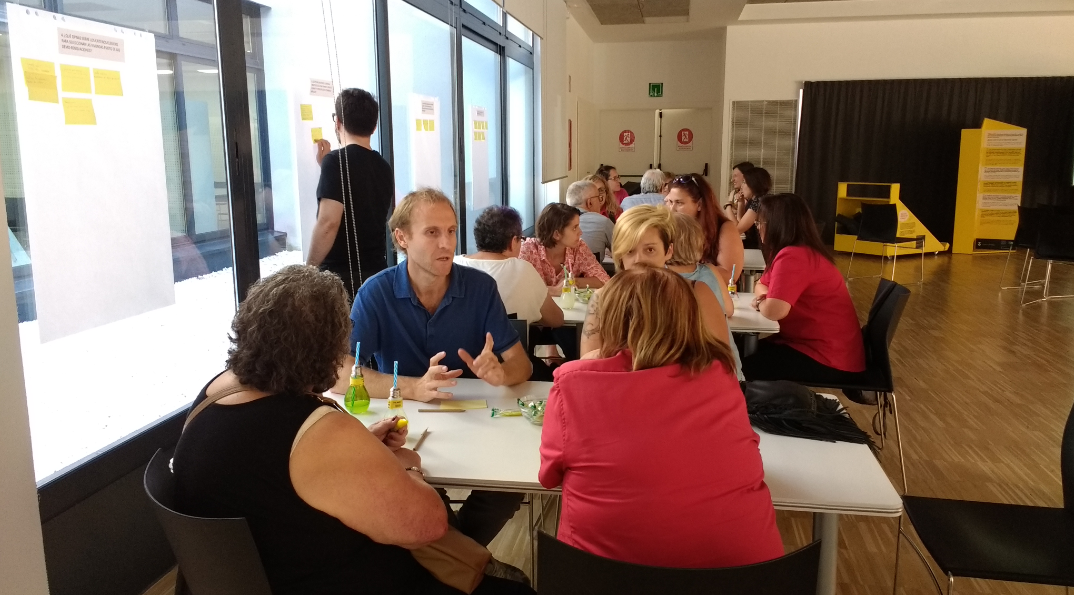
Feb 1, 2019
Last February, the three communities selected to participate in the rehabilitation process as part of the VILAWATT project were announced. The three communities in question will be subject to an ambitious energy renovation of their buildings, built almost 50 years ago, with the ultimate goal of reducing energy consumption by 70% and, at the same time, offering healthier and more comfortable interiors for its inhabitants.
The project is innovative in many aspects, for instance, in the way of focusing and managing the renovation process. Vilawatt is above all an energy transition project and, therefore, it aims to motivate a change in the way users have participated so far in the renovation processes of their buildings, integrating energy culture and environmental quality.
Such an ambitious renovation project also needs the change in the way users will perceive their buildings. Habits that were common until now will have to adapt to the new needs of the renovated building.
For the renovation to be successful and meet the needs of the users, it is very important to ensure their active and proactive participation in the whole process. For this reason, as part of the project, a participatory process has been designed with the neighbors of the communities. This process is based on learning and exchange meetings to co-design the necessary energy renovation actions in each building and adapt it to the singularities of the users and the community.
Last March, the participatory process began with the first meetings with the communities where the entire process was explained, the ambition of the project and the need and convenience of their active participation. Since then, and during the coming weeks, intensive work is being carried out between the actors responsible for the renovation project – VIMED, Associació LIMA, Gespromat – and the users of the buildings in order to reach a consensus on the interventions of renovation to be implemented in the three buildings and to approve some executive projects before summer.





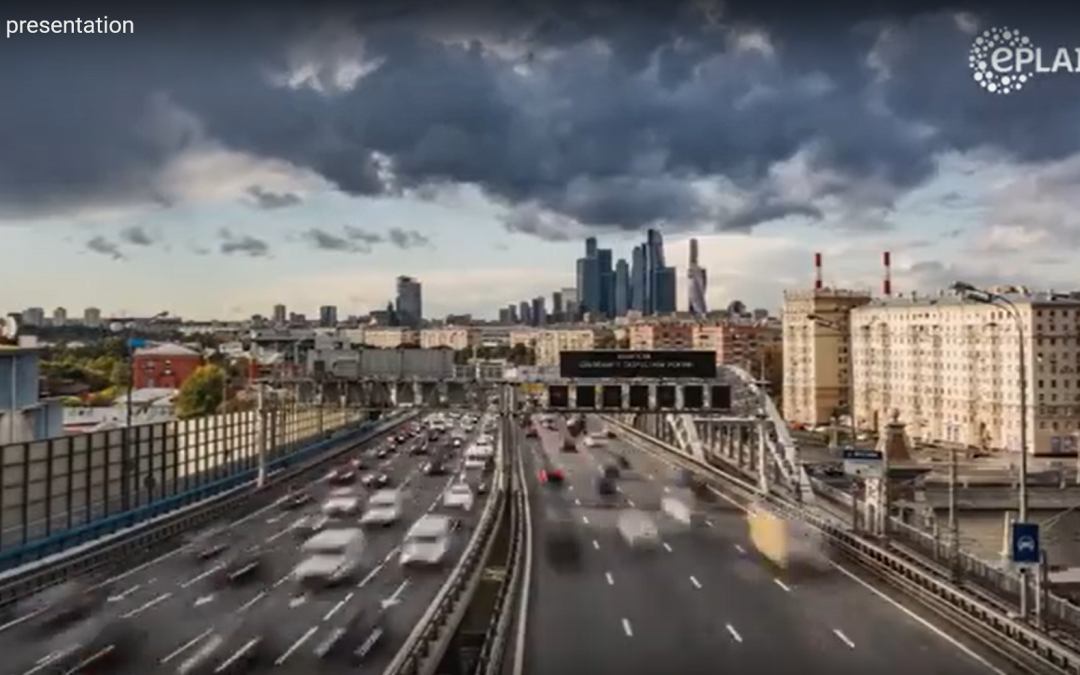
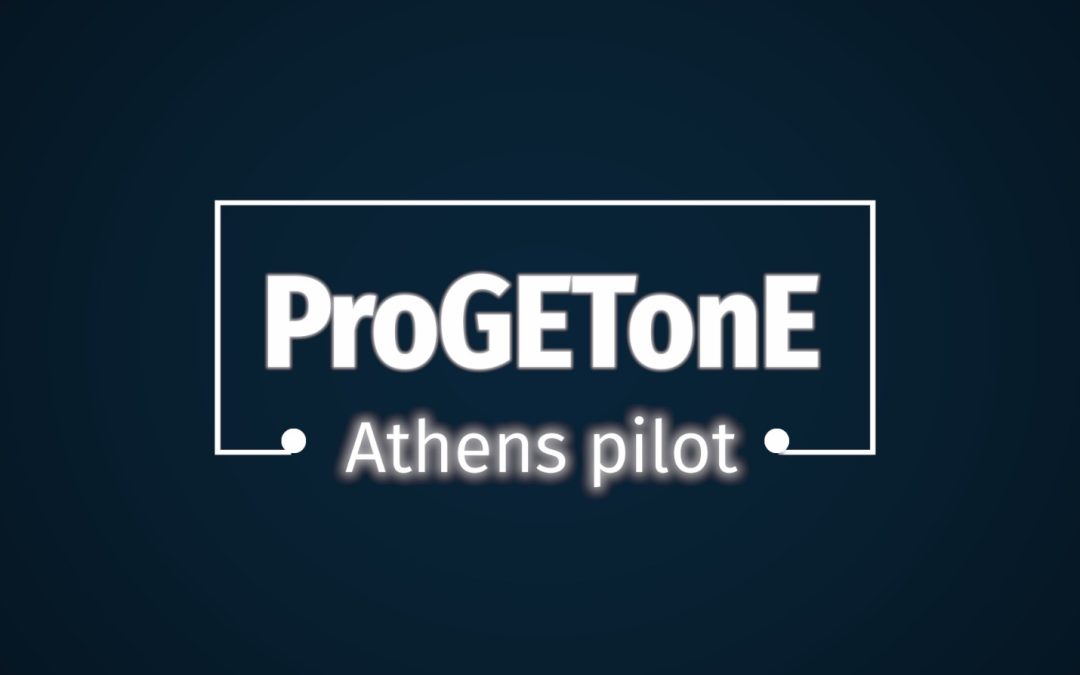


 The ePLANET project has a three year duration and, a part from LIMA, the consortium includes 9 more EU organizations: CIMNE (ES, coordinator), Catalan Energy Institute (ES), CRES (GR), FEDARENE (BE), ICLEI (DE), Girona region government (ES), Regional Development Fund of Crete (GR), Energy Agency of the Zlín Region (CZ), and THREE O’CLOCK consultancy (FR).
The ePLANET project has a three year duration and, a part from LIMA, the consortium includes 9 more EU organizations: CIMNE (ES, coordinator), Catalan Energy Institute (ES), CRES (GR), FEDARENE (BE), ICLEI (DE), Girona region government (ES), Regional Development Fund of Crete (GR), Energy Agency of the Zlín Region (CZ), and THREE O’CLOCK consultancy (FR).
